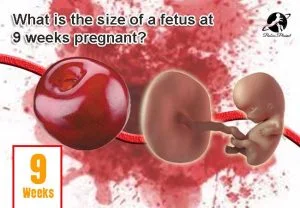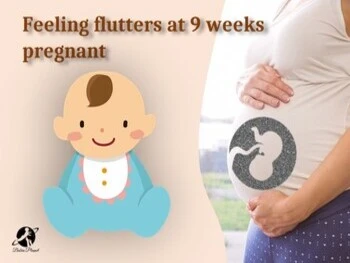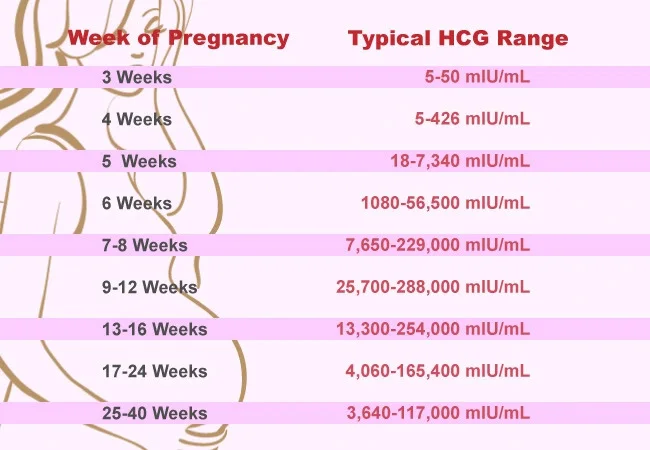Feeling the fetus moving for the first time elicits a rush of excitement and is one of the most cherished moments in a pregnant woman’s life.
However, feeling flutters at 9 weeks pregnant sounds confusing to the most of the mothers.
In most cases, pregnant people confuse indigestion or gas with baby movement. Also, bloating is another pain points.
There are times when you can be certain that what you felt is fetus movement and can describe it as baby flatters.
It’s physiologically impossible to feel any baby flutters when 9 weeks pregnant. Why not?
At 9 weeks of pregnancy, the fetus hasn’t formed most organs. The limbs are very tiny. The fetus is tiny like the size of a fruit. It’s too small to produce any meaningful movements that you can feel.
Even fittest pregnant women will not feel any movements. All the appropriate appendages are still not fully formed yet. What you feel as flutters is actually muscle spasms.
However, if it’s your second baby or third etc, doctors acknowledge that you can feel flutters because you are already in tune with your body.
Table of Contents
What is the size of a fetus at 9 weeks pregnant?

The fetus is small like a cherry and measures 0.6 or 0.7 inches and weighs around 0.12 ounces. The fetus has a mini baby shape and facial features start developing.
For instance, nose, little toes in, and eyelids. Also, the baby is forming reproductive and digestive systems.
Because of the little muscle development, you may experience little movements. However, you will feel more pronounced movements in the second trimester.
The fetus has formed earlobes, teeth, and mouth. It’s possible to hear the heartbeat although only through ultrasound.
The head is straightening and your baby starts to look like a human being.
Major physiological organs like lungs, brain, kidney, and liver continue to develop. The fetus can move its legs and arms spontaneously.
The mother experiences breast enlargement as they become tender when touched, fuller and heavier because of the mammary glands and increase in fatty tissue.
Your waistline grows and you experience spotting in your first trimester. the body undergoes rapid change even as you experience mild uterine cramps. Morning sickness comes and goes, so stay hydrated and eat smaller meals at short intervals.
You experience hunger pants and should eat a balanced diet with foods like cornstarch, yogurt, cereals, and fruits being part of the menu. You feel the need to urinate frequently and can be moody.
At times you experience fatigue owed to the increase in progesterone levels in your first trimester. It makes you sleepier than usual.
How do flutters feeling flutters like?

Pregnant women feel flutters differently. It varies among women. However, the common description of flutters from women who have experienced it is as follows:
- It feels like gas pains without passing gas
- It feels like there are some butterflies in your stomach
- You feel a tickling sensation in your stomach
- You feel a bubbling or popping sensation
- You feel like something is poking you from the inside
What differs is the location of the flutters which vary depending on the fetus’s location in your womb. Some pregnant women experience flutters slightly lower or slightly higher. Some women feel flutters at the center or on one side.
Over time the flutters get stronger as the pregnancy progresses. Eventually, your partner or friends will feel it too by touching your stomach.
How does one know its baby flutters?
You feel soft initial movements in your lower abdomen or womb. The movements signify that the pregnancy is well and the baby is growing and developing well in your womb. As your pregnancy progresses, your doctor may ask you to become conscious of the movement the fetus makes.
It’s normal for healthcare providers to ask questions about your awareness of the growth in your womb.
Fetal movements are a way of knowing if the pregnancy is progressing well. Consequently, a reduction in fetus movement signifies distress which means you need urgent medical attention to find out what is happening.
It’s uncommon for pregnant mothers to feel flutters at 9 weeks although many women have reported feeling fetal movements at this stage.
According to medical experts, at 18-20 weeks of pregnancy, it’s difficult to feel any fetal movement. Why is that so?
At this stage of pregnancy, the fetus is small and cannot make noticeable movements. However, it’s a relative timeline.
First-time mothers may not feel any fetal movements until the pregnancy is 25 weeks old.
Consequently, a pregnant mother who has birthed a baby before can easily recognize baby flatters in week 13 of pregnancy. The following things also affect whether you feel baby flutters.
- The position of the placenta
Pregnant mothers with anterior placenta will feel baby flutters later in the pregnancy than those pregnant women with the posterior placenta.
- Whether you have triplets or twins
A pregnant woman carrying triplets or twins feels flutters earlier than a woman carrying a single baby.
- Your body type
Pregnant petite women feel flutters sooner than B-belly pregnant women.
Pregnancy flutters timeline
For the first few weeks of pregnancy, you will not feel flutters. It doesn’t mean that there is no fetal movement. However, it means that the movements are too small to be noticed. In these early weeks, the fetus is moving within the embryo sac.
When going for your first ultrasound at 10 weeks, you will see movements but still not feel flutters. It’s only in the second trimester that a pregnant woman can feel flutters.
However, it’s difficult to pinpoint the exact time because of many factors, but it generally happens at 18-20 weeks of pregnancy.
For some women, flutters come earlier while some experience it at a later stage. If at this stage you feel some rhythmic movements at specific intervals, it means your baby is having hiccups. It’s a normal occurrence, so don’t be alarmed.
By the way, during contraction your baby moving like crazy and this is the final call before going to labor.
At later stages of pregnancy, the baby flutters get more intense until you won’t be able to describe them as flutters.
At this point, the pregnant woman will find the fetus’s movements too strong and uncomfortable.
As the fetus runs out of space the movements change and you can easily identify body parts that are pushing against your tummy. Also, you begin to feel sharp and more defined kicks.
Larger movements easily push through your tummy and organ which can make your breathing difficult or uncomfortable.
When should you see a doctor?
Baby flutters of fetus movements indicate healthy development and growth of the baby. In those early weeks that you can’t see movements, the doctor can see them using ultrasound.
Let the doctor know when you feel fetus movement. Inform him/ her in your next appointment. First fetus movements are inconsistent but they get consistent as weeks go by and the baby grows.
When you reach 28 weeks, your do for will ask you the number of kicks you feel.
Kicks aren’t easy to track, you have to relax and focus. Remember that the fetus also goes through periods of sleeping and being active.
It’s easy to feel fetal movements after eating, taking a cold drink, and in the morning hours.
Is it normal to feel early flutters during early pregnancy?
During the early days of pregnancy, the baby bump can hardly be seen, and hard to tell that you are having a baby. It is very normal to feel the flutters at the early stage of pregnancy. Possibilities that, you will feel them around weeks 18 to weeks 20. You will face some early pregnancy symptoms but the flutters would make things more real and beautiful.
What are the symptoms of pregnancy at 9 weeks?
During 9 weeks of pregnancy, you would continuously feel morning sickness and some of the early signs of pregnancy might hit the peak button.
This happens due to the HCG hormone which is at its highest level up to 49%.

Fatigues and extra moody behavior might show up and there will be breast tenderness, heartburn, and constipation.
Is it possible to feel the baby moving at 9 weeks?
It is hard to tell anything clearly that early in pregnancy. It might be the gas or maybe the baby’s movement. You will likely feel your little one moving 18-20 weeks into pregnancy. First-time mothers may feel the movement at 25 weeks or so. But there is a possibility that you might get flutters at that time.
Can you feel the flutters at 9-week 2nd pregnancy?
Yes, you can feel the flutters at 9 weeks 2nd pregnancy. There is a difference between gas and the baby moving, you need to know about that.
If you feel anything fluttering in your tummy around 9-12 weeks, there is a chance that your baby is moving in there. But it might be hard to differentiate at first whether you are feeling the baby or gas.
What does it feel like when your baby starts moving at 9 weeks?
When your baby starts to move at 9 weeks, you will feel some fatigue kicks around this time. Many moms have witnessed this experience around this time and also you will feel exhausted.
At first, it is hard to tell whether what you are feeling is your baby’s quickening (Baby kicks are called quickening) or gas.
As time goes by, there should be a pattern, especially during the 9-12 weeks period. Some moms said the movements are like tickling or bubbling.
How early can you feel the baby move on ultrasound?
Things might be too early to feel anything, but you can hear the heartbeat of your precious with an ultrasound. If the baby’s heart is developed enough, an ultrasound device will be able to amplify the lub-dub sound of your baby’s heart. Don’t panic, if the doctor fails to pick up the sound, maybe your little one is very shy to show his existence.
Takeaway
It’s difficult to feel flutters at 9 weeks pregnant although some women who have delivered before can feel fetal movements at this stage.
In most cases, you feel movements at 13 weeks or commonly at 18-20weeks. You can get an ultrasound at this stage or schedule it later between weeks 10-12.
The body of the mother undergoes visible changes and you can have mood swings, feel hungrier, morning sickness, fatigue, etc.
A routine medical appointment is necessary as advised to ensure your baby is developing fine.
Women feel thrilled when the fetus flutters but mostly happens from weeks 11or 13 onwards for women who have had babies before.
Let me know if you have questions and feel free to leave a comment.
Sources:
Rauchfuss LK, Ainsworth AJ, Shenoy CC. Abnormal rate of human chorionic gonadotropin rise: a case series of patients with viable intrauterine pregnancies after embryo transfer. F S Rep. 2021 Feb 11;2(1):129-132. doi: 10.1016/j.xfre.2020.11.006. PMID: 34223284; PMCID: PMC8244357.
